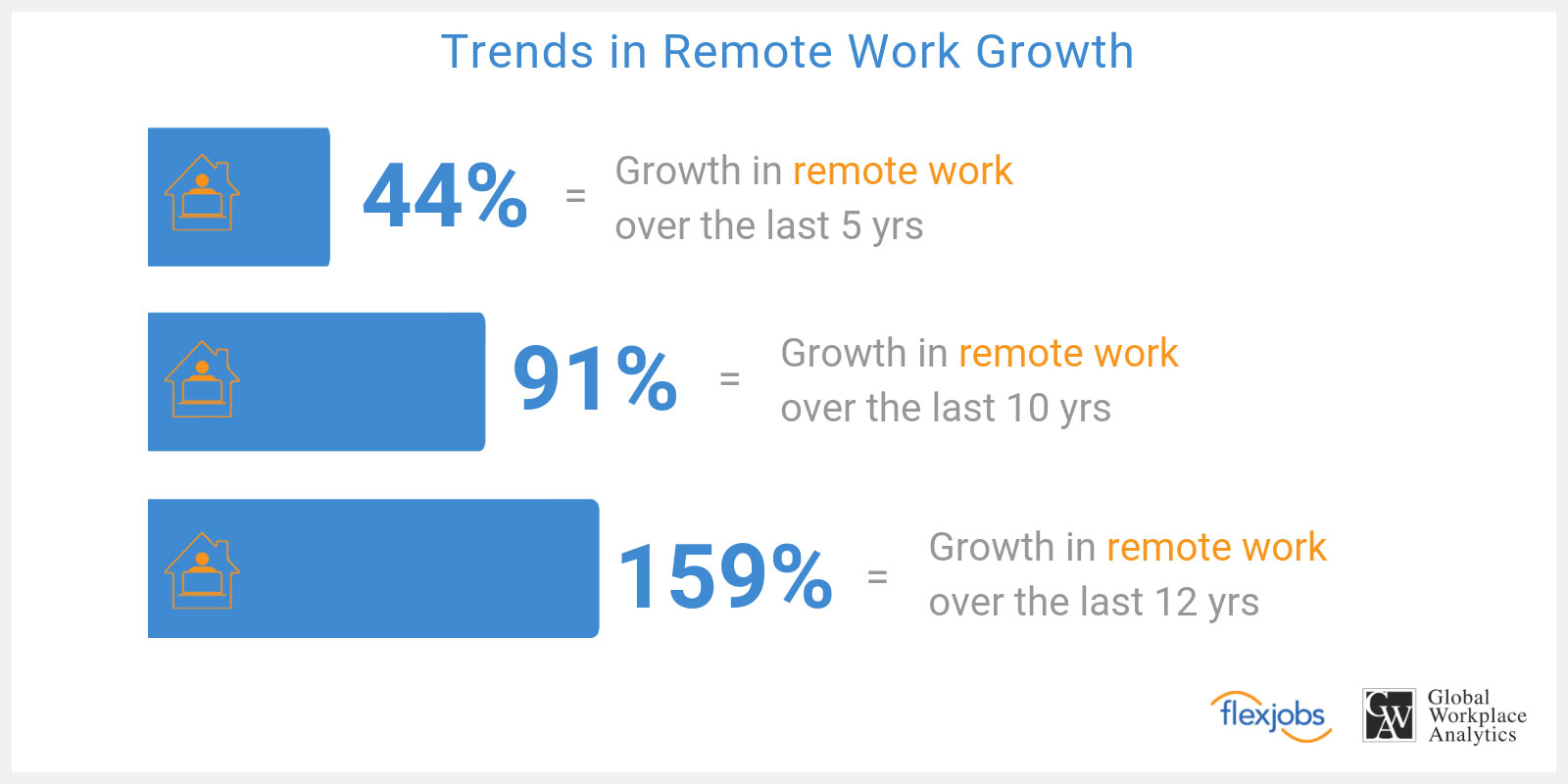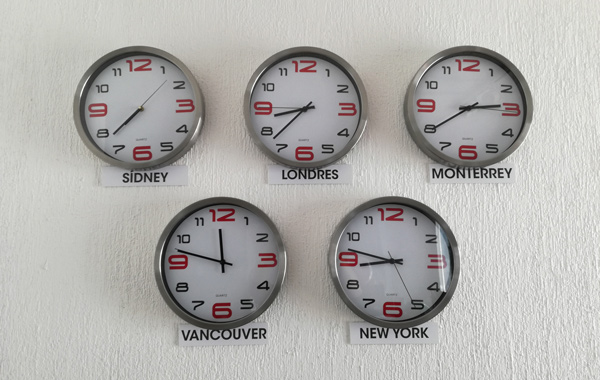With more virtual teams across the world, often team members never even meet each other. Global Workplace Analytics stated that remote work increased by 173% between 2005 and 2018.
In addition, an Economist report showed that 78% of respondents have worked in a global team. This may seem to be positive news so what could possibly be the downside?

With all the advantages of online work comes some unforeseen issues. Most people are used to working in an office environment where they see their teammates on a daily basis. Meetings are held around a table and social events are the norm.
Remote teams are almost the complete opposite. They span the globe with different time zones and often never see each other in person.
Different cultures and languages bring many opportunities and challenges for freelance workers. We need to be able to understand the different people we work with across the globe.
This means developing a global outlook but how exactly do you do this?
The starting point involves defining a global mindset.
Defining a Global Mindset
A global mindset is an appreciation of cultural diversity in the international market. It
allows participants in international contexts to move beyond the limits of their pre-existing behavior and ethnocentric thinking.
By expanding on this definition, a global mindset is:
- A willingness to step outside one’s culture.
- Situational dependant on cultural context.
- Acceptance of cultural differences as neither positive nor negative.
Why Develop a Global Mindset

When working in a remote team, it is important to be aware of the different cultures of your colleagues. They may even be in the same country as you but have different backgrounds.
This is when a global mindset will help you to build and enhance good working relationships.
According to the Harvard Business Review, you have a global mindset if you have:
- Social capital: A concept that facilitates cooperation, exchange, and innovation. An individual will have intercultural empathy, impact, and diplomacy.
- Intellectual capital: Involves an individual who has cognitive complexity. They are globally business savvy and use a cosmopolitan outlook.
- Psychological capital: This is used by employees to improve their performance. They will often display a passion for diversity when involved in a global setting.
An individual with psychological capital is self-assured and has a quest for adventure.
These different forms of capital help foster a global mindset. By communicating with colleagues, we can begin to understand their unique cultural point-of-view.
Tips To Develop a Global Mindset
There are various ways to develop a global mindset and make you a successful global team player.
As Steve Jobs said, “Great things in business are never done by one person; they’re done by a team of people.”
These soft skills are easily applicable and will allow for global teams to enjoy remote work.
Be Aware of Different Time Zones

It is important to be considerate of the working hours of team members across time zones.
Calling a fellow employee at midnight can simply be ill-mannered. It also shows you do not value their privacy.
This means you will need to keep track of many different time zones. There are various tools that can help you keep track of the time zones.
A world clock widget allows you to view multiple time zones. All you need to do is set the location of your workmate and just check before you contact them. There are different world clock tools available for Apple and Microsoft.
There will also be public holidays unique to your teammates’ countries. Make sure you are aware of their availability and do not disturb them unnecessarily. This is their day of rest so be respectful and make sure the whole team is aware.
To monitor public holidays, you can use a team calendar from apps such as Basecamp and Teamup Calendar.
Minimize Cultural Nuances
Everyday language is filled with idiomatic sayings and colloquialisms specific for each culture.
For example, when Americans speak of “all over the map,” they are not referring to literal places on a map. Rather, they are speaking of a conversation that does not stick to the main topic. “The meeting yesterday was all over the map.”
When an Australian colleague speaks of doing some “hard yakka”, it might sound like gibberish. Don’t brush them off just yet. The lingo means they are engaging in hard work.
You might find during a video conference your Kenyan colleague saying “You look so smart.” which doesn’t make much sense.
You may think they are referring to your intelligence (possibly). Kenyans, however, use “smart” as a synonym of beautiful or good-looking. So in essence, they are complimenting your looks.
It is advisable not to use these confusing idioms and stick to simple language.
Another cultural difference that may cause confusion is in units of measurement. Include conversion rates when necessary (e.g 1km = 1.6 miles).
The same goes for measurements such as 1kg = 2.20 lb. Managing these seemingly small nuances reduces the chances of further divide being created.
Pay Attention to Small Details
In a global team, you will encounter names that may prove a bit tricky to pronounce. Your name may even be difficult for your other teammates (though you may not think so).
It is important to show respect to your fellow employees and learn the correct spelling and pronunciation. This is a small detail that promotes healthy relationships and improves morale across the organization.
Don’t hesitate to ask for phonetic spellings and your team member is sure to appreciate the effort on your part.
Use Visual Video Conferencing Tools

Virtual meetings are a major communication tool for all remote teams often phonecalls.
It should, however, be noted that a lot of communication is non-verbal. This is why visual virtual meetings offer an added advantage.
If for example there is a long silence over a phone call, you may assume the person is not happy with what you said. A video meeting would allow you to see if they are frowning, or just distracted.
Visual meetings also offer the opportunity for team members to ‘put a face’ to the messages and voices.
There are numerous tools available that make visual meetings easily accessible. These include Zoom, Google Meet, and GoToMeeting.
Celebrate Cultures and Team Successes
You need to be aware of what others are doing, applaud their efforts, acknowledge their successes, and encourage them in their pursuits. When we all help one another, everybody wins.
Jim Stovall, Award-Winning Writer
Successful completion of tasks should be celebrated even if you are all miles apart.
Be wary of extravagant displays of public accolades until you know if the recipient is comfortable with the attention. Do not let this stop you from sending a private ‘Well done’ message.
The different cultures of an organization are also a basis for celebration. When in a physical office, you all celebrate the same events and holidays at the same time.

Remote teams have the challenge of celebrating a myriad of holidays. Online parties could be the solution for those away from the office so they also feel included in the fun.
Why not Netflix Party as a group? You can share comments as you watch, making the movie that much more interesting.
By acknowledging each other’s holidays, you create team spirit and camaraderie. A global mindset is achieved when you educate fellow team members about your culture, traditions, and holidays.
Socialize With Communication Tools
“All work and no play makes Jack a dull boy.” Or rather, all work and no play makes online workers miserable and unmotivated.
Working from home means unless you really have to have an incentive to leave. You may find yourself cooped up and alone most of the day. Work may become monotonous and it becomes harder to maintain a positive attitude.
Avoid feeling isolated by engaging in workplace banter with fellow employees. In a normal work setting, this would be around the water cooler or just in passing.
There is no reason the same cannot apply virtually. Join a group chat or run a Slack channel. You can even exchange light-hearted moments on Basecamp Campfire.
Are You an Effective Global Team Player?
Being part of a global workplace is just one of the reasons online work is so popular. Managers can see the benefit of including various cultures and backgrounds.
Employees themselves enjoy working with people outside their normal circles. They also have the opportunity of learning something new each day.
For you to be able to call yourself an effective global team player, you need to learn what it takes to be an overall amazing remote worker.
The Successful Behaviours & Habits course is a comprehensive online training for remote workers. Offered by Small Revolution School, it provides information on how to become a top-notch online employee.
Apart from training you on how to achieve a global outlook, the other topics include:
- How to deal with distractions.
- How to maintain a healthy work ethic.
- Working harder vs working smarter.
Enroll today and learn how to become an effective global team player.


